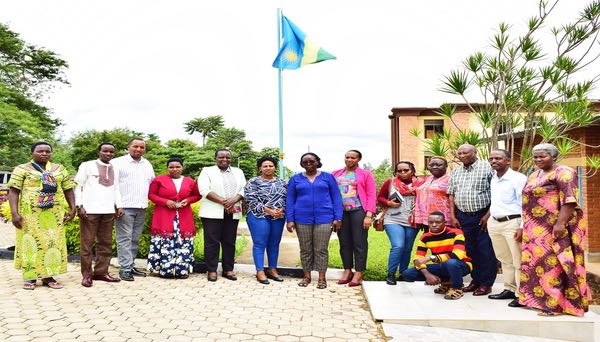
The Rwanda Agriculture and Animal Resources Development Board (RAB) launched the Improving Indigenous Chicken Productivity Project in collaboration with several esteemed institutions such as the University of Rwanda, Egerton University, the International Livestock Research Institute (ILRI), and with funding from the Rwanda National Council for Science and Technology (NCST).
The project aims to contribute to the sustainable growth of the poultry sector in Rwanda by developing market-driven solutions to incentivize indigenous chicken (IC) producers, public and private sectors to invest in sustainable productivity.
To achieve the objectives of the project, the initiative will develop improved IC genetics, feed, and market systems innovations to fill productivity and value-chain gaps.
The project will also aim to strengthen the capacities of women groups in IC husbandry, including the production and delivery of quality IC genetics.
The event was attended by poultry farmers, RAB officials and partners to discuss strategies that would enable collective collaboration to steer the successful attainment of the Project’s goals.
Dr Fabrice Ndayisenga, Head of Department Animal Resources Research and Technology Transfer at Rwanda Agriculture and Animal Resources Development Board, opened the event by urging participants to take advantage of the market-driven solutions that the project offers to improve the productivity of indigenous chicken. He emphasized the importance of the project in driving sustainable growth in the poultry sector.
The project will carry out studies at Muhanga research station and pilot them on-farm at Muhanga and Bugesera district.
The project team will select farmers to set up the nucleus of IC, collect 500 indigenous chickens (Imirangi, Inshenzi, Inganda, and Indayi) from different locations, and put them in quarantine for 14 days.
The collected chickens will lay eggs, which will be kept in a hatchery for producing chicks, and their performance (growth parameter, production parameter, and health parameters) will be evaluated from day one.
Through the project, performance data will be used to select the improved indigenous chickens on eggs and meat productivity, and then formulate affordable supplementary feeds using local materials. Additionally, the project will provide vaccination programs using thermostable vaccines to enhance the health of the chickens.
Dr. Claire Hirwa D’Andre, the Mono-Gastric Program Coordinator at RAB, added that the project would involve a range of activities aimed at improving the quality characteristics of indigenous chicken meat and carcass.
The attending farmers suggested that maintaining regular training and field visits should be a driving strategy to enable collective collaboration and steer the successful attainment of the Project’s goals.
They emphasized that exchanging ideas and sharing progress is essential to identify areas that require improvement. Overall, the project has the potential to create long-lasting change and promote sustainable economic growth in Rwanda’s poultry sector. (End)
